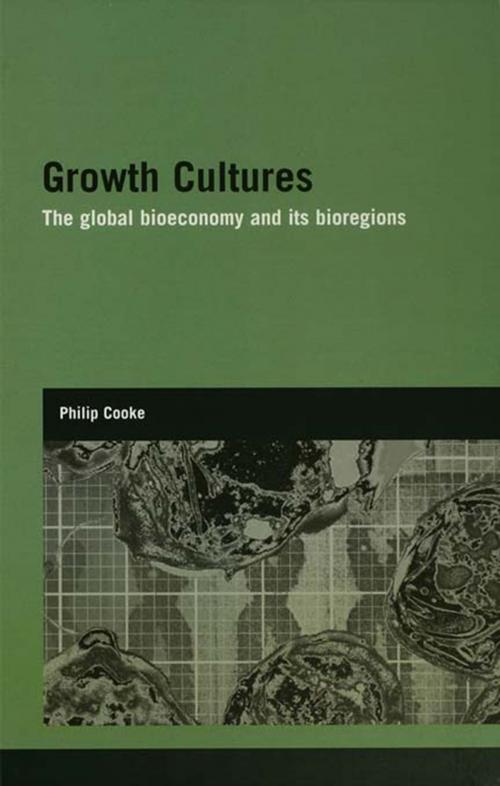Growth Cultures
The Global Bioeconomy and its Bioregions
Nonfiction, Social & Cultural Studies, Social Science, Sociology| Author: | Philip Cooke | ISBN: | 9781136781971 |
| Publisher: | Taylor and Francis | Publication: | August 21, 2013 |
| Imprint: | Routledge | Language: | English |
| Author: | Philip Cooke |
| ISBN: | 9781136781971 |
| Publisher: | Taylor and Francis |
| Publication: | August 21, 2013 |
| Imprint: | Routledge |
| Language: | English |
This groundbreaking book is the first comparative analysis of the relative strengths of global bioregions. Growth Cultures investigates the rapidly growing phenomena of biotechnology and sets this study within a knowledge economy context. Philip Cooke proposes a new knowledge-focused theoretical framework, ‘the New Global Bioeconomy’, against which to test empirical characteristics of biotechnology.
In this timely volume, Cooke unifies concepts from the sociology of science, economic sociology and evolutionary economic geography to focus on the problems and prospects for policy agencies worldwide trying to build ‘biotechnology clusters’. He develops a superior policy approach of thinking in terms of platforms that integrate proximities and pipelines, which will be of significant interest for the scientific and technological communities as well as economic development policy communities.
Growth Cultures will make fascinating reading for students, policy makers and researchers across management and business studies, innovation and knowledge studies, sociology, science and technology policy, applied economics, development studies and regional science.
This groundbreaking book is the first comparative analysis of the relative strengths of global bioregions. Growth Cultures investigates the rapidly growing phenomena of biotechnology and sets this study within a knowledge economy context. Philip Cooke proposes a new knowledge-focused theoretical framework, ‘the New Global Bioeconomy’, against which to test empirical characteristics of biotechnology.
In this timely volume, Cooke unifies concepts from the sociology of science, economic sociology and evolutionary economic geography to focus on the problems and prospects for policy agencies worldwide trying to build ‘biotechnology clusters’. He develops a superior policy approach of thinking in terms of platforms that integrate proximities and pipelines, which will be of significant interest for the scientific and technological communities as well as economic development policy communities.
Growth Cultures will make fascinating reading for students, policy makers and researchers across management and business studies, innovation and knowledge studies, sociology, science and technology policy, applied economics, development studies and regional science.















